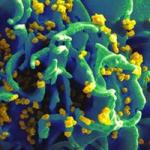
Research Topics
The Metabolism, Infection and Immunity Section (MINIS) studies the interplay between metabolism and the immune system through a translational research program involving patients with inborn errors of mitochondrial metabolism. The group studies two aspects of immunometabolism: 1) the effects of immune system activation on end-organ mitochondrial metabolism; and 2) the role of mitochondria in immune cell function.
Immune System Activation and End-Organ Mitochondrial Metabolism
The focus of the group's research on immune system activation and end-organ metabolism is based on the clinical observation that infection is a major cause of metabolic decompensation and associated morbidity and mortality in patients with mitochondrial disease. The MINIS uses animal models, combined with infectious organisms or immune activators, to yield insights into the metabolic perturbations seen in disorders of mitochondrial metabolism and to identify potential targets for intervention. Metabolic perturbations are demonstrated using metabolomics, mRNA profiling, proteomics, enzymology and in vivo metabolic imaging with MR spectroscopy.
Mitochondria and Immune Cell Function
The group also studies intermediary metabolism and immune cell function. Immune cells drastically alter their metabolic programming during activation and differentiation. The deficiencies present in patients with mitochondrial disease may affect these processes. In order to describe the interactions between intermediary metabolism and immune system function, the group developed a clinical protocol in the National Institutes of Health (NIH) Clinical Center, called the NIH MINI Study: Metabolism Infection and Immunity in IEM (NIH Clinical Trial NCT01780168).
This protocol is the first organized effort to examine immune function in patients with mitochondrial disease. These investigations are complemented by concurrent studies of immune function using animal models. By expanding the immune phenotype of patients with mitochondrial disease, these studies will have an impact on the clinical care of patients as well as serving as the foundation for understanding the role of mitochondria in immune function.
Biography
Dr. Peter McGuire received his bachelor's in psychology from Villanova University, a master's in microbiology and immunology from New York Medical College, and an M.B.B.Ch. (with honors, and equivalent with an M.D.) from the Royal College of Surgeons in Ireland. After completing a combined residency in pediatrics and medical genetics at Mount Sinai Medical Center, he was awarded a fellowship in biochemical genetics from the American College of Medical Genetics and Genzyme. After completing his training, he remained as a junior faculty member in the Program for Inherited Metabolic Diseases at Mount Sinai. Dr. McGuire is board certified in Pediatrics, Clinical Genetics and Biochemical Genetics.
In 2010, Dr. McGuire moved to the National Institutes of Health (NIH) to join the Physician Scientist Development Program to accelerate his translational research program. He was appointed to the position of tenure track Investigator in 2016. Throughout his career, Dr. McGuire has been focused on improving the care of patients with disorders of mitochondrial metabolism. By combining his training in immunology and biochemical genetics, he fashioned a translational research program to understand the interplay between mitochondrial metabolism and the immune system.
His NIH Clinical Center protocols, the NIH MINI Study, is the first organized effort to study immune function in patients with disorders of mitochondrial metabolism, which aims to demonstrate that these patients can be informative regarding the role of mitochondria in immune cell function.
Selected Publications
- Tarasenko TN, Pacheco SE, Koenig MK, Gomez-Rodriguez J, Kapnick SM, Diaz F, Zerfas PM, Barca E, Sudderth J, DeBerardinis RJ, Covian R, Balaban RS, DiMauro S, McGuire PJ. Cytochrome c Oxidase Activity Is a Metabolic Checkpoint that Regulates Cell Fate Decisions During T Cell Activation and Differentiation. Cell Metab. 2017;25(6):1254-1268.e7.
- Gordon-Lipkin EM, Banerjee P, Franco JLM, Tarasenko T, Kruk S, Thompson E, Gildea DE, Zhang S, Wolfsberg TG, NISC Comparative Sequencing Program, Flegel WA, McGuire PJ. Primary oxidative phosphorylation defects lead to perturbations in the human B cell repertoire. Front Immunol. 2023;14:1142634.
- Fuchs AL, Singh B, Jetmore JW, Warren EB, Banerjee P, Marin Franco JL, Eckhaus MA, Tarasenko TN, Assaad MR, Kosik I, Yewdell J, McGuire PJ. Mitochondrial dysfunction enhances influenza pathogenesis by up-regulating de novo sialic acid biosynthesis. Sci Adv. 2025;11(27):eadu3739.
- Jestin M, Kapnick SM, Tarasenko TN, Burke CT, Zerfas PM, Diaz F, Vernon H, Singh LN, Sokol RJ, McGuire PJ. Mitochondrial disease disrupts hepatic allostasis and lowers the threshold for immune-mediated liver toxicity. Mol Metab. 2020;37:100981.
- Warren EB, Gordon-Lipkin EM, Cheung F, Chen J, Mukherjee A, Apps R, Tsang JS, Jetmore J, Schlein ML, Kruk S, Lei Y, West AP, McGuire PJ. Inflammatory and interferon gene expression signatures in patients with mitochondrial disease. J Transl Med. 2023;21(1):331.
Related Scientific Focus Areas




Microbiology and Infectious Diseases
View additional Principal Investigators in Microbiology and Infectious Diseases

This page was last updated on Wednesday, August 27, 2025